Vasylenkove, a village on the frontline

Ukrainian forces were based only five kilometres away in Basileyevka. Russian troops dug open and covered trenches around the houses in Vasylenkove and set up their artillery unit at the school. Little now remains of the school: empty cans and the casings of shells fired at the Ukrainian lines lie scattered over its charred remains.
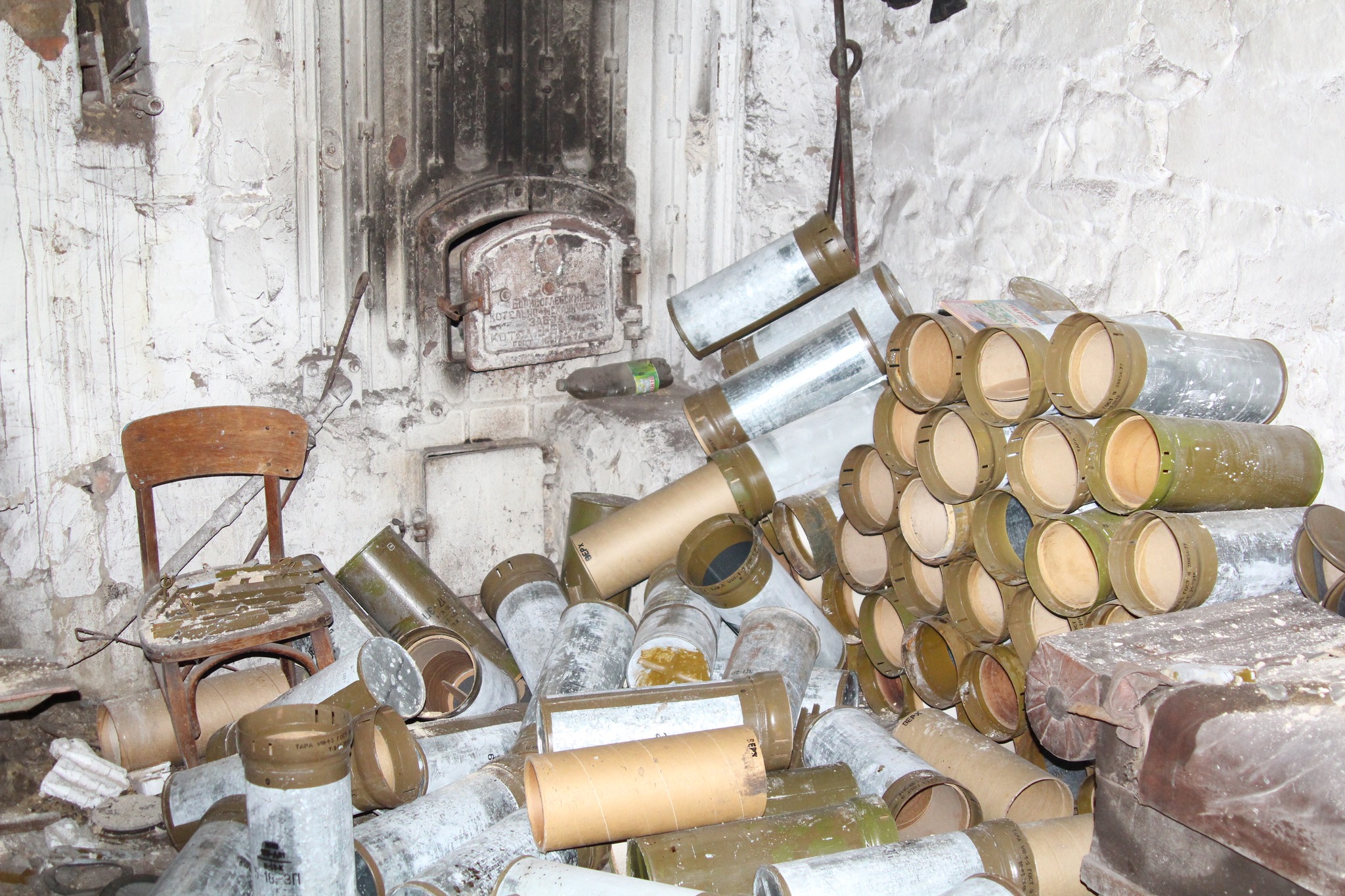
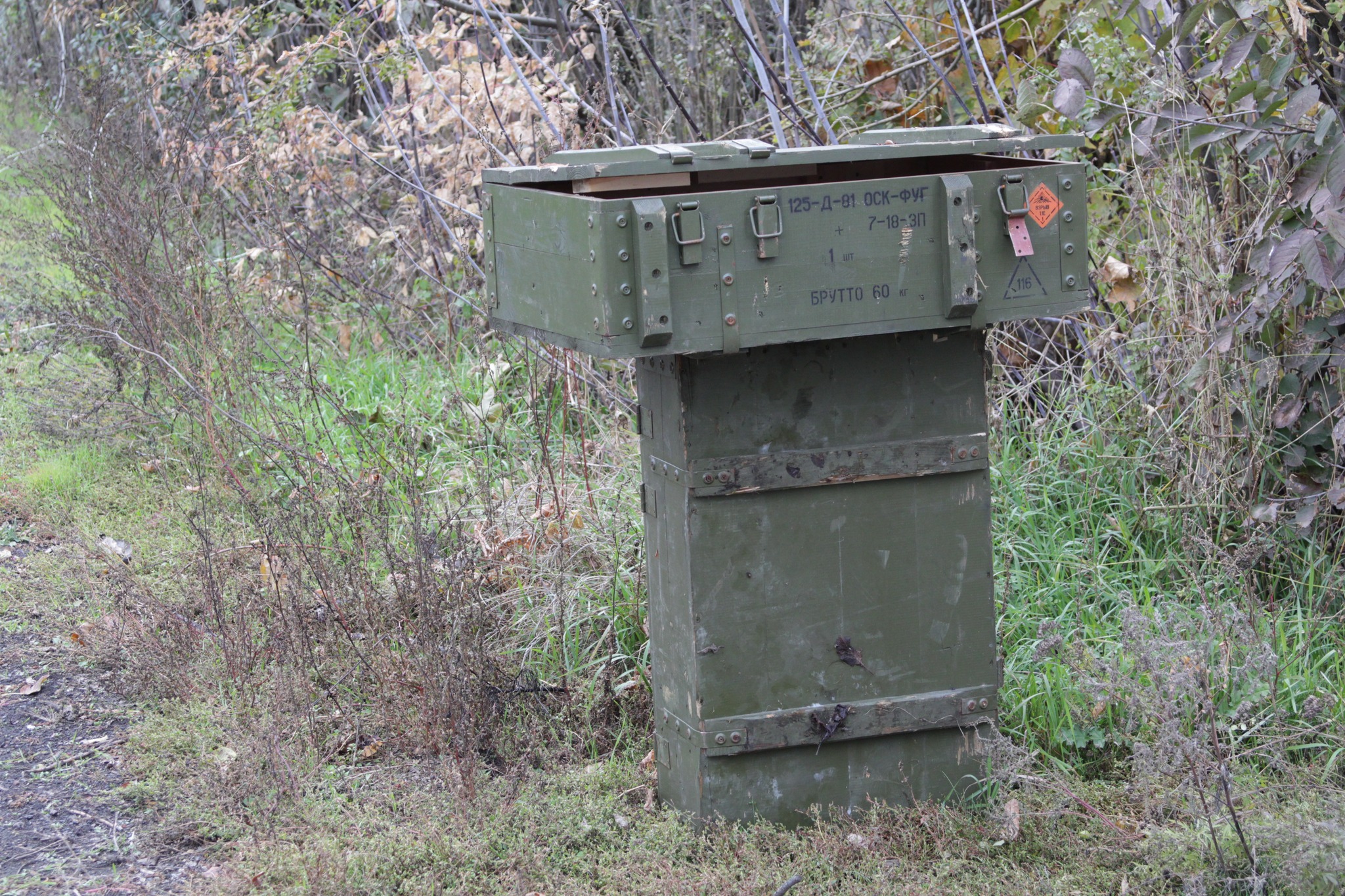
The school in Vasylenkove, built in 1911, was one of the oldest in the district. Even now, when the autumn winds howl through its scorched walls, you can see what a handsome building it was.
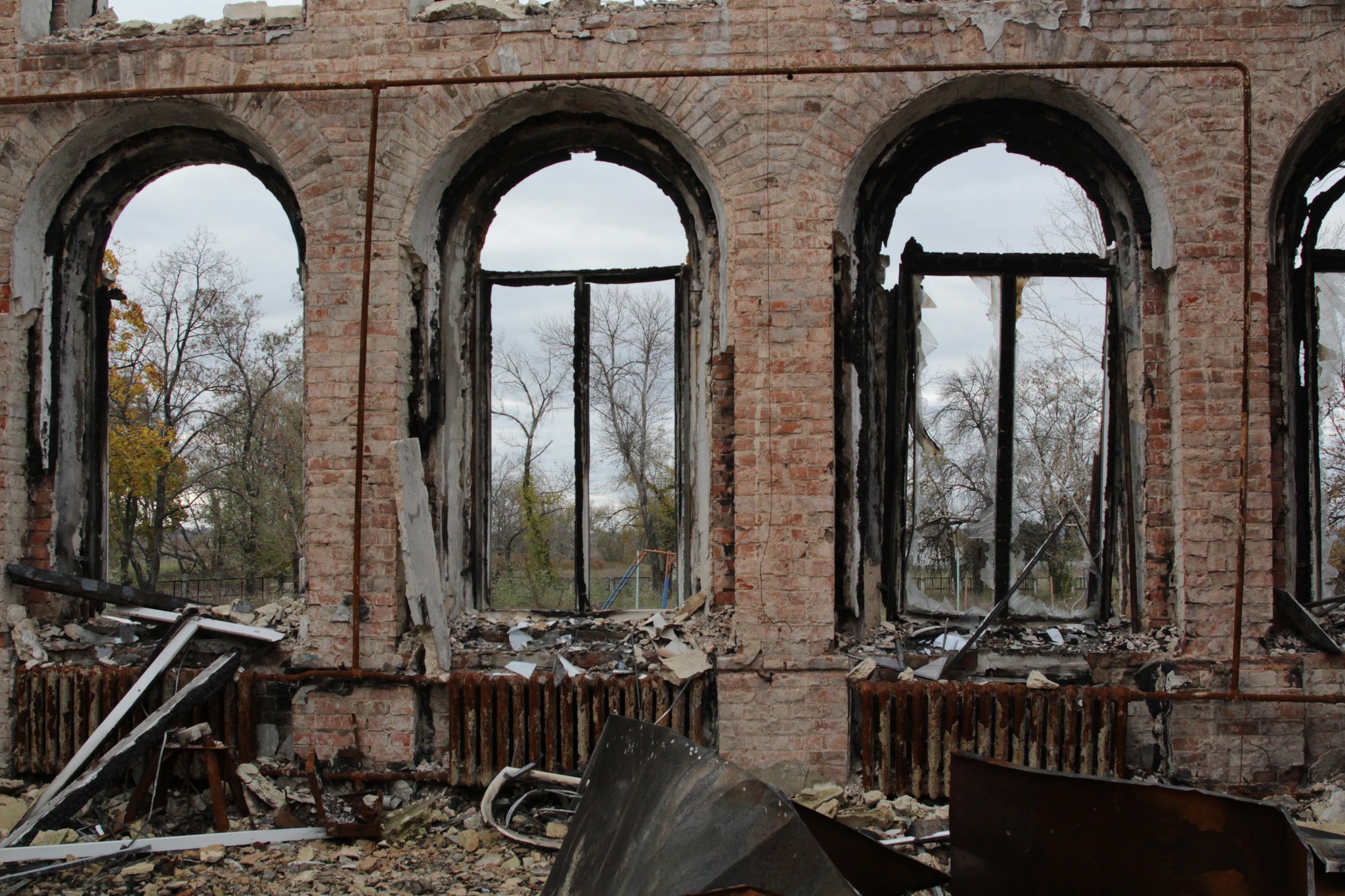
A labyrinth of trenches cross the school garden. Judging by the amount of rubbish and empty cans (“not for sale – liver paste”) Russian forces expected to be here for a long time. They left in a great hurry. Even official documents, like this receipt for a weapons delivery, were left behind: it indicates that soldiers from Unit 55443 NL, based in Kotovo village (Novgorod Region, Volga Federal District) were based here.
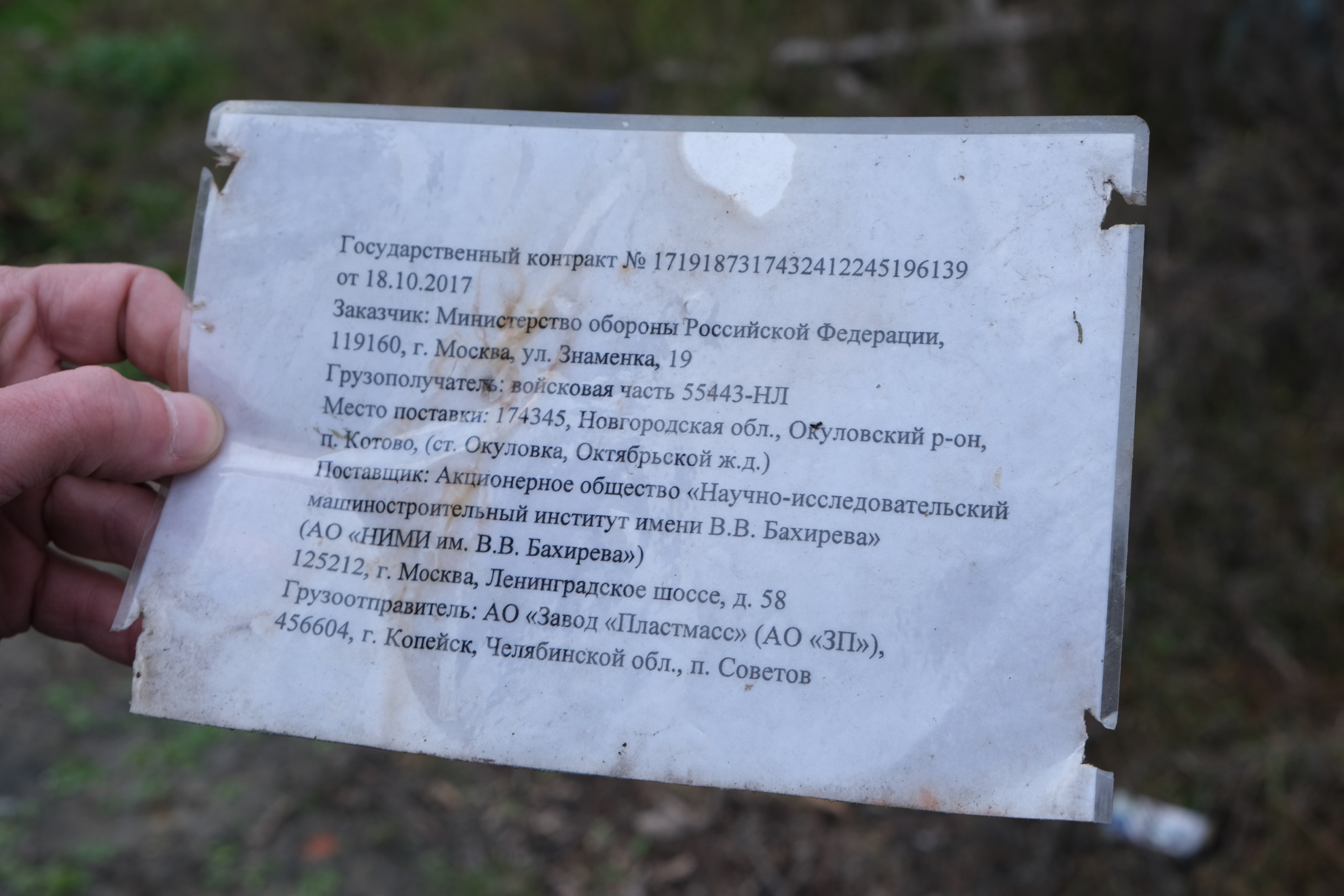
“The school burned down in mid-summer,” says a senior pupil Olexiy Serhiyenko, proudly showing on his mobile phone a video he found on the internet taken by a drone flying overhead.
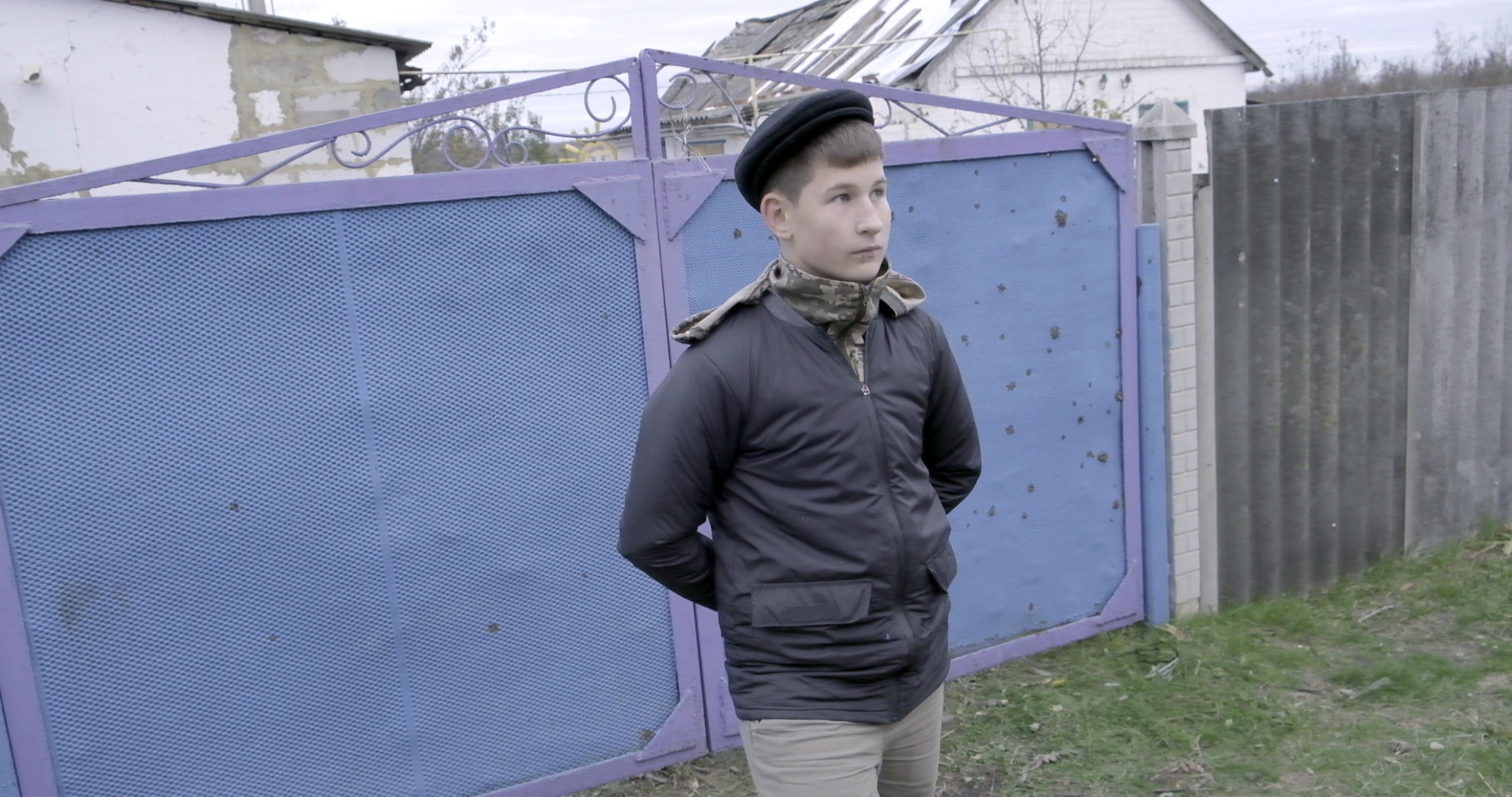
Today Olexiy is probably the only child left in Vasylenkove. He can’t study; the school was officially closed last week.
“We went to the neighbouring village”, says his mother “but they now study online. We don’t have any connection here, so Olexiy can’t study yet. We must wait till the internet is restored.”
People fled from the northern outskirts of the village in late April when enemy vehicles drove straight across gardens and orchards and began digging trenches next to their houses -- “like Colorado beetles”, say the locals.
“They set up mortars in our gardens and asked which wells were safe to drink from,” remembers Olexiy: “they were afraid the water was poisoned. They looked for bugs in the houses for fear of being overheard.”
The invaders organised three bases in the village, Olexiy says. To begin with, before they were rotated out, they acted like three different forces. They did not get on and even took shots at one another: “There were men from the DPR and LPR [Donetsk and Luhansk “people’s republics”], Buryats, Chechens and Tajiks …”
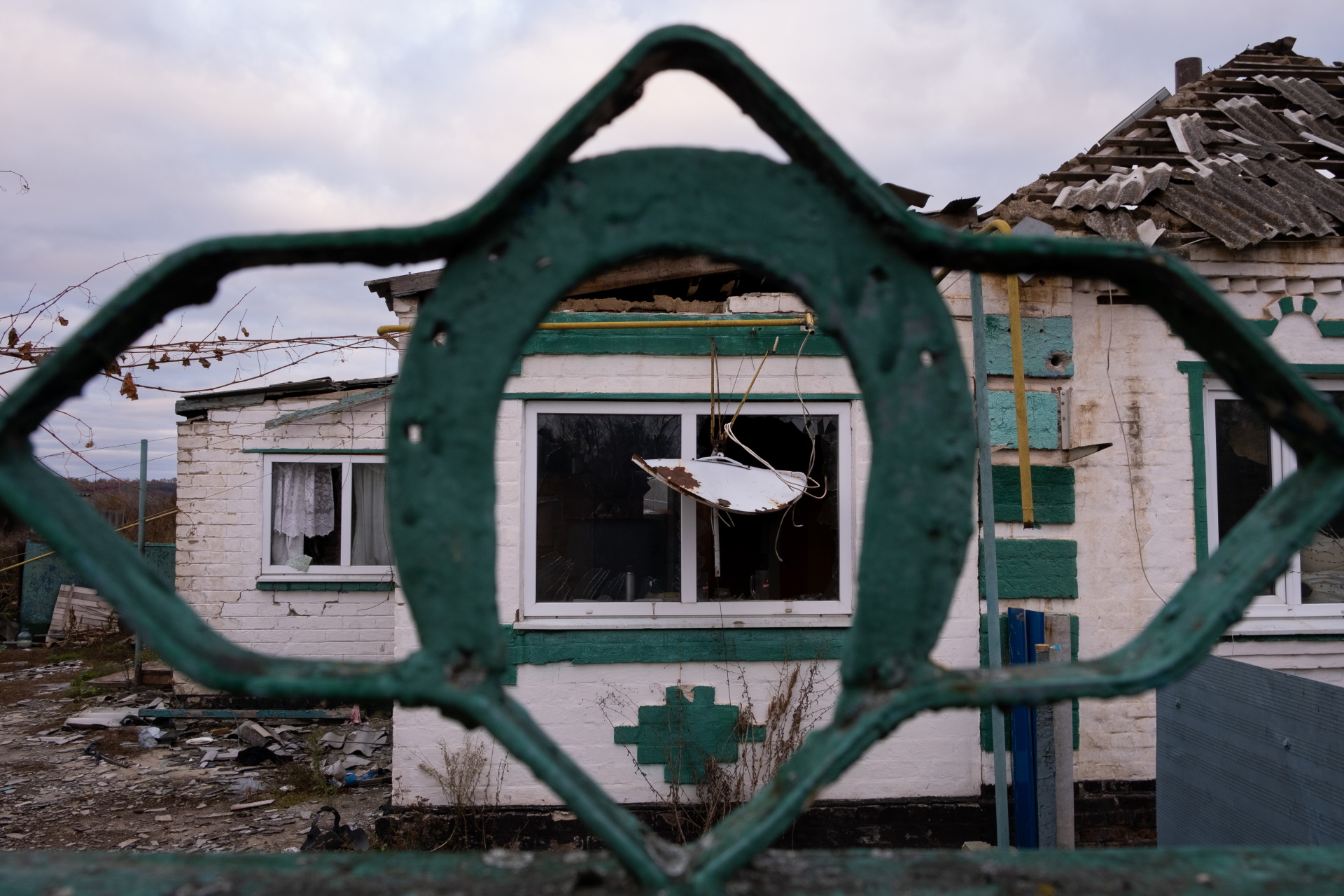
Olexiy’s granny, Maria Yefimivna, went to join her sister at the other end of the village. It was a little less dangerous there. She wants to spend the winter in her own house. But many repairs must first be made. There is a gaping hole in one wall, no glass in the windows and the roof is open to the skies.
Russian soldiers lived in the house. They stole the divan and wrote V for Victory on the door. A sniper was based in the loft and the fighters wrote verse on the walls of the toilet.
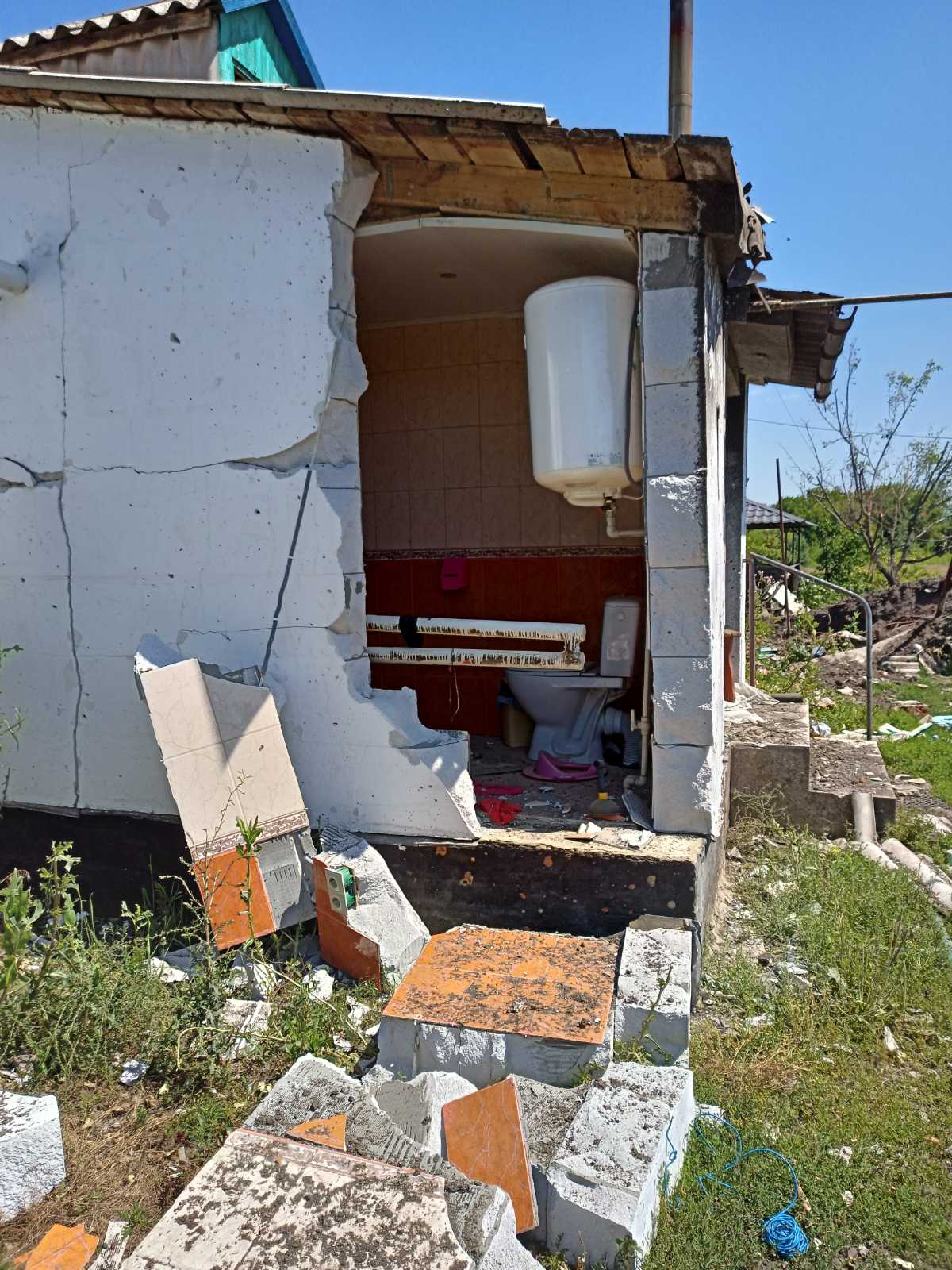
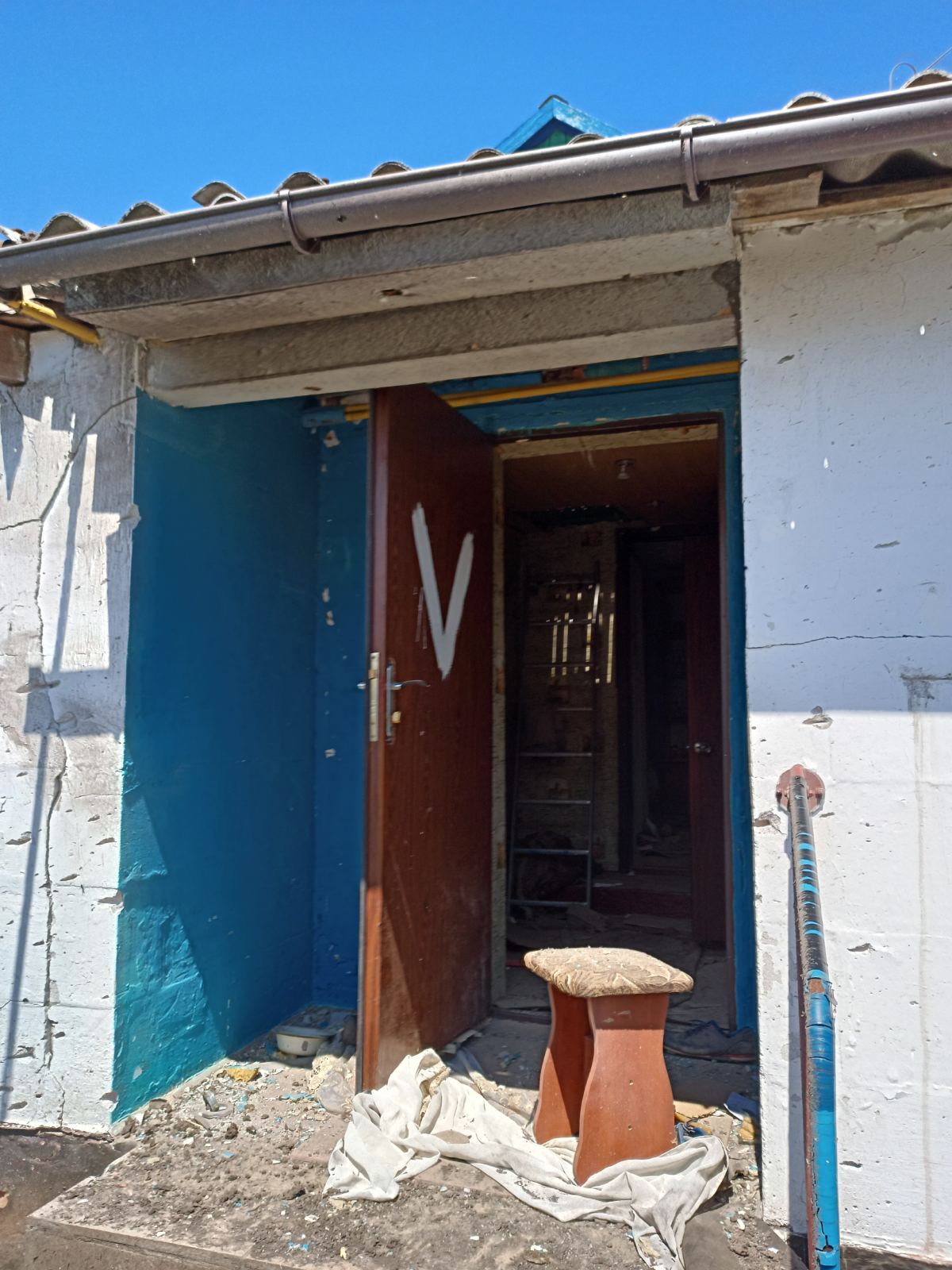
In the middle of the courtyard is a pit.
“That used to be our [underground] winter store,” explains Olexiy.
“After it was hit by a shell, the Russians turned it into a covered trench. They dragged their bags in there and hung a curtain over the entrance so that a drone could not spot them,” he says. “Then there was another direct hit and that was it.”
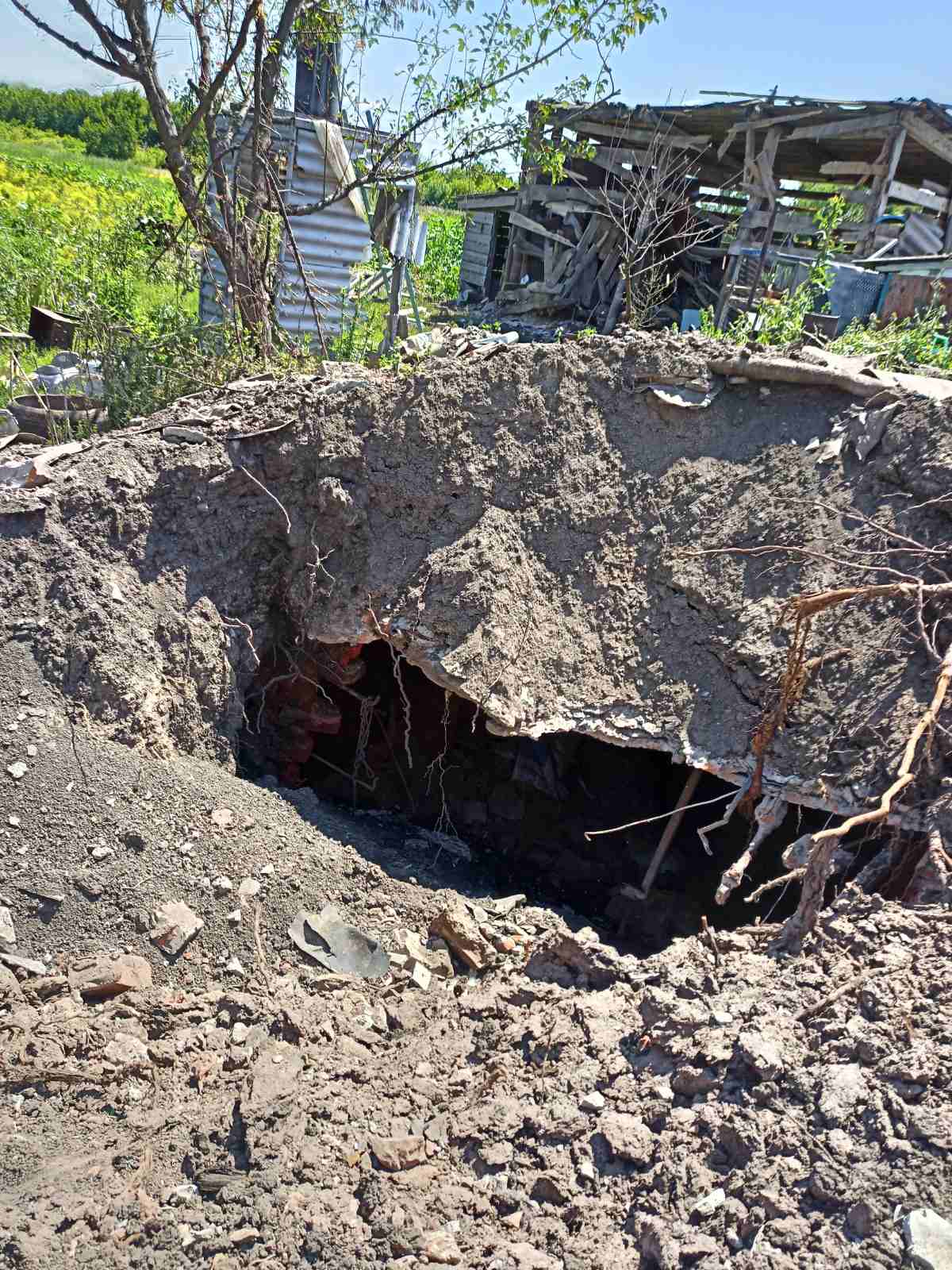
Olexiy has a collection of trophies (shell casings, gas masks, a military helmet) – enough to create a museum. All the dangerous materials, left by the invaders, such as boxes full of unused shells, were taken by Ukrainian forces.
The craters left by incoming shells can be found next to the houses and in the orchards. There among the tall weeds are many unexploded shells and Ukrainian sappers still have a lot of work to do, especially in the surrounding fields. One man was blown up by a mine, the only death in the village. Others were wounded. They were saved by their neighbours.
The invaders also arrested one lad. “After the school was hit the Russians were in shock,” recalls Olexiy. “They themselves said that 50 of their men were buried there. Straightaway they introduced a curfew from 4 pm onwards. The lads were standing outside a house and the Russians began checking their phones. They didn’t like something Sasha had on his phone. At first, they dragged him round the village then they took him to Kupyansk, it seems. Later they let him go.”


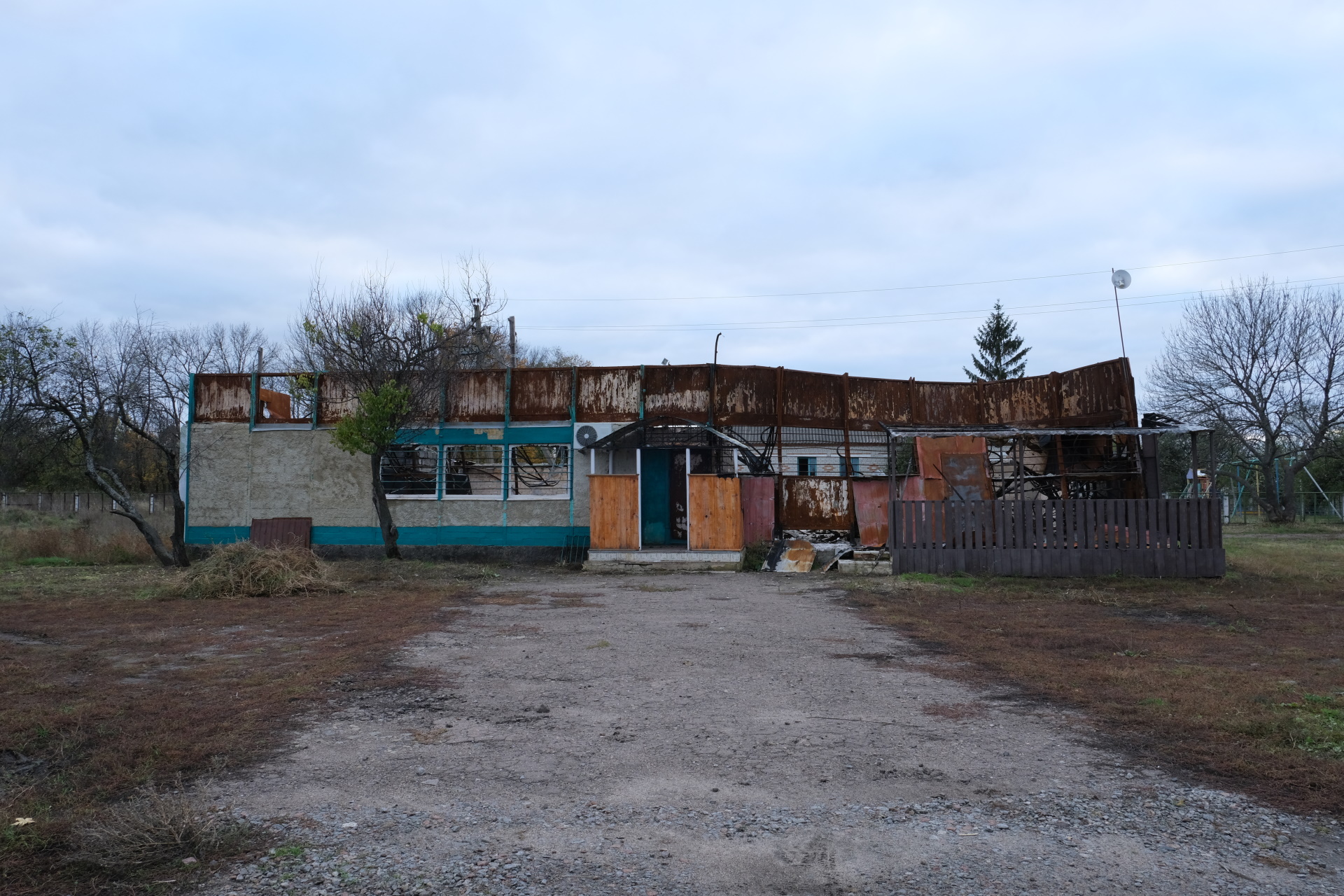
Now the villagers are gradually returning home. Only electricity has been restored so far. In some places people can catch a mobile signal. They are trying to patch up walls and roofs before the frosts begin.
“We’ll survive the winter somehow and have another think in the spring …” says Olexiy’s grandmother. “Thank God our home didn’t burn down! This old woman will see out her days here,” she rejoices.
